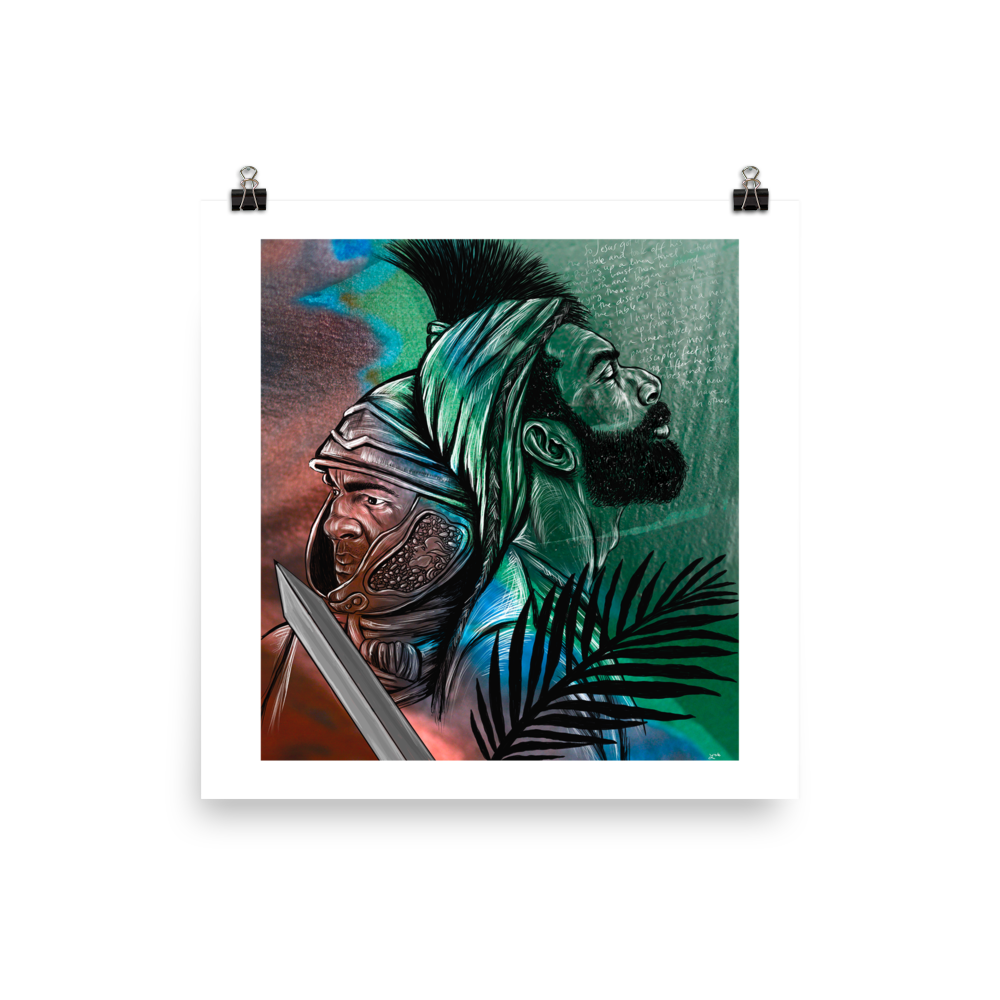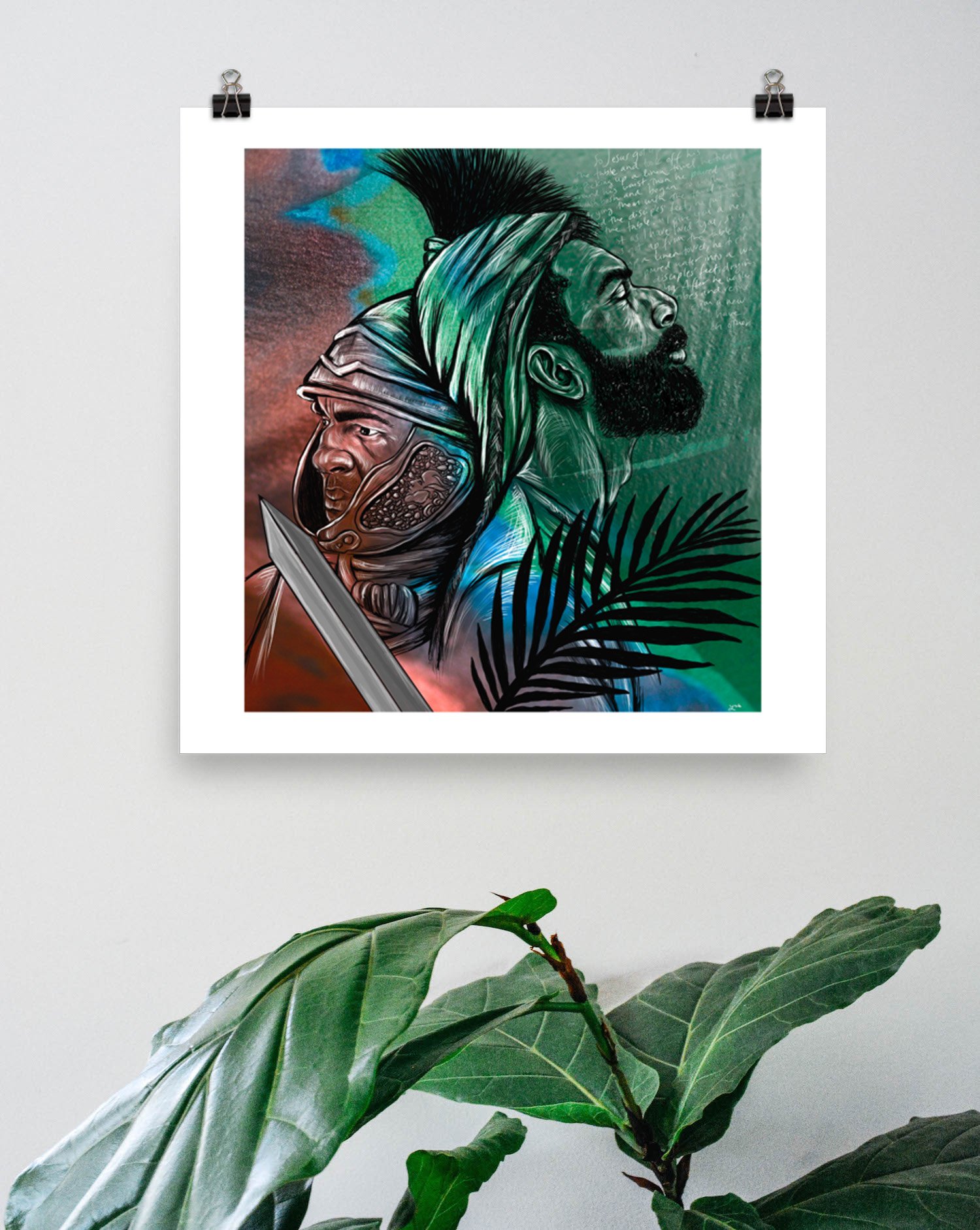Power Play Print (Palm Sunday) by Lisle Gwynn Garrity






Power Play Print (Palm Sunday) by Lisle Gwynn Garrity
Power Play
Silk painting with digital drawing and collage
By Rev. Lisle Gwynn Garrity
Inspired by Matthew 21:1-11
Museum-quality poster made on thick, durable, matte paper. Unframed artwork will arrive rolled up in a protective tube.
Framing option available.
Print Details:
Museum-quality posters made on thick, durable, matte paper.
Paper is archival and acid-free.
Unframed prints arrive rolled up in a protective tube.
Frame Details:
Alder, Semi-hardwood frame
Black in color
.75” thick
Acrylite front protector
Lightweight
Hanging hardware included
Made in the USA
From the Artist:
In their book, The Last Week, theologians Marcus Borg and John Crossman assert that there were actually two parades occurring simultaneously in Jerusalem on this day. From the east, Jesus entered on a donkey. From the west, the Roman governor, Pontious Pilate, entered with an imperial guard. They write: “Jesus’ procession proclaimed the kingdom of God; Pilate’s proclaimed the power of empire. The two processions embody the central conflict of the week that led to Jesus’ crucifixion.”
This image is a meditation on these opposing processions and the embodiment of power. Pilate processes with a pompous display of armor, accompanied by soldiers. For him, power is displayed by superiority, elitism, and weaponry. Later in the week, he will use his power to satisfy the crowds willing Jesus to be crucified, despite not finding any offense to justify it (read John 18 & 19). He uses his power for violence, to appease the status quo.
Jesus enters the city on a donkey with her young colt in tow. He wears no armor, only soft linens. In this image, I imagine if the composition were expanded, Jesus would be kneeling, humbling himself before his disciples as he washes their feet. In Jesus’ processional, members of the crowd lay down their coats as a display of humility and honor. This foreshadows the way Jesus will take off his outer robe and tie a towel around his waist to wash his friends’ feet. Jesus embodies power through a posture of vulnerability, through caring for those who desperately need love.
Which parade you would join in Jerusalem has a lot to say about your definition of power. If you are quick to place yourself in Jesus’ parade, I encourage you to pause and consider these questions honestly: When have you aligned yourself with systems or people who have used their power for violence or to uphold the status quo? When have you embodied power through vulnerability and love for your neighbor?
—Rev. Lisle Gwynn Garrity










